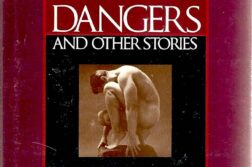THE DEATH of J. D. Salinger earlier this year prompted Jennifer Finney Boylan to comment in The New York Times (Jan. 1, 2010) that what made the author’s reclusiveness “sad and strange” is that the author shunned the fame and publicity that so many unpublished writers so desperately desire. Boylan would know. The widely published author and four-time Oprah guest also teaches writing at Colby College, and like the majority of her students, she understands that in an era of tweets, blogs, and book tours, a writer can’t always remain inside a room of one’s own. In 2009, she performed The Porcupine Woman, a combination of songs and stories, in Seattle, Atlanta, and New Haven, and as the first transwoman to appear regularly on the op-ed page of the Times, she has made her private life—or lives, first as novelist James Finney Boylan and later as Jenny Boylan—a source of public interest.
Not that Boylan is complaining. To satisfy what she calls the “humiliating, cringe-inducing necessity of becoming a public person,” she once found herself in the green room of the Today show—about to promote her first memoir, She’s Not There: A Life in Two Genders (2003)—seated beside actress Lucy Liu, who asked what Boylan was there to discuss. “Sex change,” Boylan replied. Reflecting later on this simple truth, she would write: “Was this what it means now, to be a person of letters? Discussing one’s genitalia with the actress from Charlie’s Angels?” This is characteristic of Boylan’s comic sensibility and her love of the punch line. As she observes in I’m Looking Through You, Growing Up Haunted (2008): “It is an unfortunate fact that transgendered people generally have to take responsibility for educating the people around them about their nature, in a way it is unnecessary for most people who emerge as gay or lesbian, or say, Flemish.”
Boylan has been married to Deirdre Finney (or “Grace” as she’s called in She’s Not There) for 22 years. The couple has two teenage sons, Zach and Sean, who refer to Jenny not as “Mommy” or “Daddy,” but as the hybridized “Maddy.” This interview was conducted in February via e-mail (a medium that Salinger probably dreaded).






